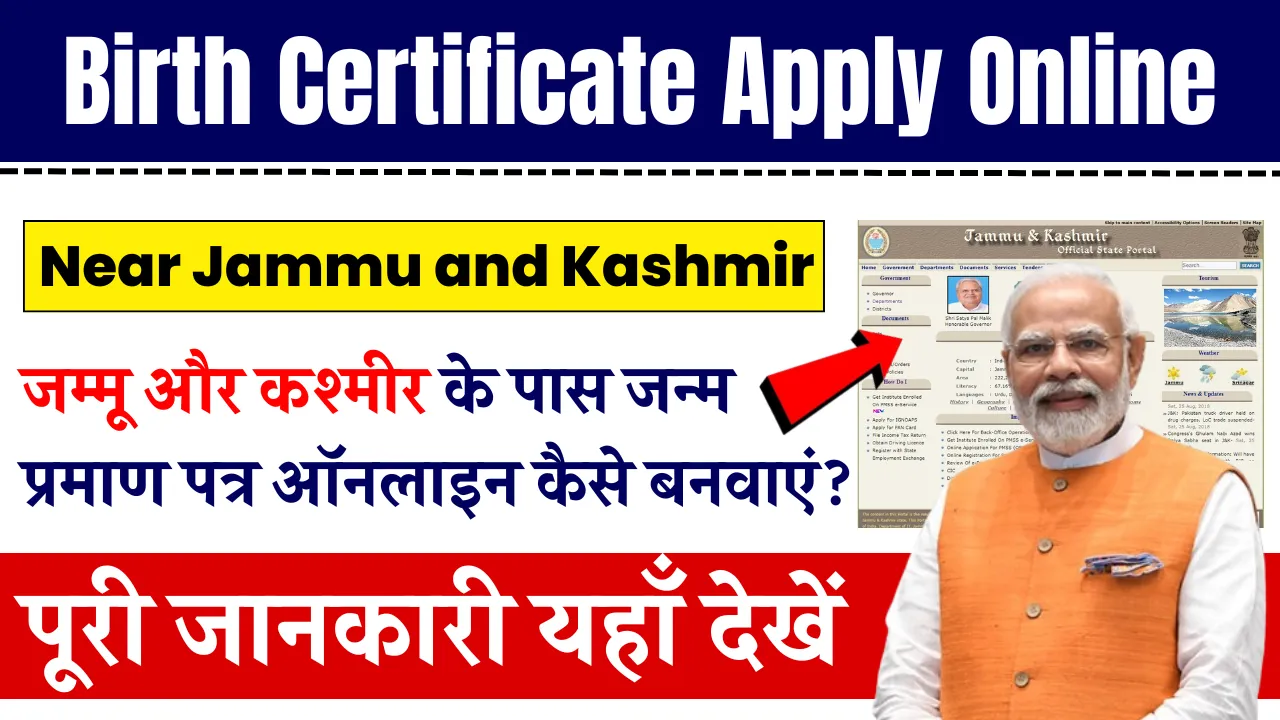In a significant move to streamline public services, the Jammu and Kashmir administration has made an “historic decision” to simplify the process of obtaining birth and death certificates, especially for rural residents. No longer will citizens need to visit block statistical offices; these essential services will now be accessible at the Panchayat level.
The government has decided to establish dedicated counters in Panchayat Ghar buildings where Panchayat Secretaries will be authorized to issue these certificates. This decision, recently approved during a cabinet meeting, aims to ensure easier access to government facilities for all citizens.
Contents
Key Highlights:
- Panchayat Secretaries will now issue birth and death certificates.
- The requirement to visit Block Offices has been eliminated.
- Separate counters will be set up in Panchayat Ghar buildings.
- The system will be integrated with an online portal.
Government’s New Initiative: Certificates at Your Doorstep
Previously, residents in Jammu and Kashmir’s rural areas had to travel to block statistical offices to obtain birth or death certificates, a process that consumed considerable time, money, and effort. However, with the recent cabinet approval, this responsibility has been delegated to the Panchayat Secretary. This means that local residents can now easily apply at their respective Panchayat Ghar buildings.
Dedicated Counters at Panchayat Ghars
Under this new system, a separate counter will be established within Panchayat Ghar buildings. Here, the Panchayat Secretary and relevant staff will process applications. The government also plans to provide special training to Panchayat Secretaries to ensure accuracy in issuing certificates.
Who Will Be Responsible for Issuing Certificates?
- Applications for birth certificates must be submitted to the Panchayat Secretary within 30 days of birth.
- The Panchayat Secretary will verify applications based on available documents and issue the certificate.
- The same procedure will apply to death certificates.
- All records will be securely maintained in digital format for easy retrieval in the future.
How Rural Residents Will Benefit
This decision will greatly benefit citizens living at the village level. They will no longer need to travel to towns or block offices, saving significant time and reducing the potential for corruption.
The benefits include:
- Transparency in the application process.
- Faster issuance of certificates.
- Higher probability of accurate information at the local level.
- Relief from travel difficulties for elderly individuals and women.
Online System Integration for Certificate Issuance
The government also plans to make the certificate issuance process fully transparent and digital. Each Panchayat Ghar will be equipped with computers and internet access, enabling direct entry of birth and death data into an online system. This data will then be integrated at the state level.
Other Important Cabinet Decisions
The recent cabinet meeting not only focused on decentralizing certificate issuance but also made several other significant decisions related to health, development, and research in Jammu and Kashmir.
- Assistance for Families of Martyred Personnel: The J&K administration announced financial assistance and a government job for the family of personnel martyred in the line of duty, honoring their sacrifice.
- Focus on Tourism Development: Initiatives to boost religious and adventure tourism, with a focus on creating new employment opportunities for locals, were also discussed.
- Regional Reservation for Persons with Disabilities: The government has decided to implement regional-based reservation for persons with disabilities in government jobs, aiming to provide them with better employment opportunities.
- Third-Party Safety Audits for Bridges: All bridges exceeding a certain length will undergo third-party safety audits to assess their structural integrity and safety. Expert organizations, potentially including IITs, will be involved in this process.
This decision by the Jammu and Kashmir administration is not just about birth and death certificates; it represents a revolutionary step towards decentralization of governance. It will empower decision-making at the village level and enable citizens to find solutions to their problems locally.
